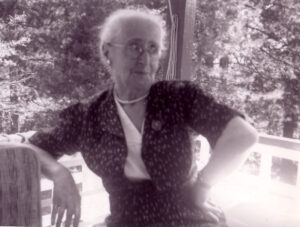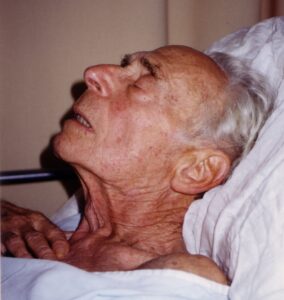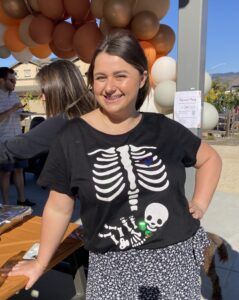El Dia de Muertos 2023
Jan and I received invitations to two parties celebrating this holiday, both asking us to bring an ancestor’s picture and favorite dish to share. That morning I felt an irresistible impulse to try to cook spaetzele, a favorite of my grandmother’s. I found several Youtube instructions for doing that, one featuring an Oma who spoke the same low Swabian dialect I remembered.
We attended the party at the home of our neighbors across the street, a beautiful young family the father of prominently Mexican descent. The house was packed with people of several generations and ethnicities and the ofrenda–traditional memorial altar–overflowed with pictures and mementos, to which I happily contributed my own.
Spaetzele
This is a South German dumpling noodle that I loved to eat as a child and even more to watch my grandmother, Elise Wertheimer Marx (1878-1970), prepare over her stove.
I was reminded of it this past July when Jan and I visited Bodersweier, the village where she was born and where her family lived back to the 1700’s. They were either driven out or murdered by the Nazis.
We were invited there by a German couple our age who’ve worked tirelessly on German Jewish reconciliation, in particular on recording the history of the local Jewish community. Their son, the mayor of the nearby small city, Kehl, invited us to lunch where Spaetzle was served.
This was yet another layer of awakening in a chain extending from last year’s post linking memories of the dead to the account of my father’s passing during his nursing home’s Halloween party in 1995.
What made the festivity on our street staggeringly poignant was learning that the couple had recently miscarried their second baby, conceived when their first severely autistic love-lavished child turned three years old.
And also that their next door neighbors were pregnant again after having lost their first at six months:



